A circular bioeconomy – which turns renewable biological resources and waste streams into new products – is at the heart of the EU’s efforts to slash its carbon emissions while also maintaining economic growth. But what does a bioeconomy look like and how do we get there?
Horizon asked five young experts and activists what the bioeconomy means to them – and what needs to happen for it to become a reality.
We can create brand new products from waste
–Daria Wohlt, a doctoral candidate at the Fraunhofer Institute for Process Engineering and Packaging in Germany
In the bioeconomy, we try to combine economic growth and sustainability, and develop processes based on biological knowledge to use or produce products in different fields, such as consumer products, food or fuel.
At the Fraunhofer Institute, I work to find uses for leftovers and side streams of banana, mango and coffee cherry (the fruit that encases coffee beans) production. You’re only using a specific part of an ingredient or plant, and there is so much left over. Think about banana peels. They are about 40% of the fruit’s weight but are usually used for fertiliser or animal feed. Worst case, they’re dropped on landfills. Those products contain valuable ingredients and we were able, for example, to produce tasty banana-peel puree for use in food applications.
Daria Wohlt. Image credit – Daria Wohlt
The globe is facing multiple challenges right now: we have limited resources in terms of fossil fuels, land and water. At the same time, we’re facing climate change and we have a problem with waste production. With the bioeconomy, we can find new renewable raw materials and produce new products.
Research is vital to realise that. You cannot convert to a sustainable economy overnight. There might be great ideas about how to use renewable resources, but we need research to produce evidence-based sustainable solutions.
We must make the most of the natural resources we already use
–Dr Silje Steinsholm, a scientist at the Norwegian Institute of Food, Fisheries and Aquaculture Research in Norway
With the growing world population and increasing consumption, we need to strive for a more sustainable and circular use of the resources we have available. This is how we will be able to ensure global food security and stable fuel sources, limit climate change, and all other things we depend on to maintain the way of life as we know it.

Dr Silje Steinsholm. Image credit – Nofima AS
I’m part of the AQUABIOPRO-FIT project, which seeks to create nutritional value from marine side streams. I work to find uses for raw materials generated during fish fileting, such as heads and backbones. While a great deal of these leftovers are used for feed production, there is still a lot of waste. In my work, I’m evaluating the taste and flavours of potential protein-based food ingredients.
For me, the bioeconomy entails using all our biomasses in the most sustainable manner, and waste as little as possible, in a global perspective. We need to understand how to make the most of the resources we already use. There are many ways to develop a sustainable bioeconomy, but some are likely better than others.
The bioeconomy needs support to be able to compete with traditional industries
–Gabija Imbrasaitė, winner of the 2018 Bio-based Joint Undertaking Bioeconomy Prize at the 30th European Union Contest for Young Scientists
In 2016, in the EU alone, food waste costs around €143 billion. And yet fresh produce, like fruit and vegetables, are often thrown away by supermarkets because they’ve lost their commercial appearance. I developed an edible biofilm for fresh produce in order to decrease food waste. For the invention, I won the bioindustries bioeconomy prize in the European Union Contest for Young Scientists.
Gabija Imbrasaitė. Image credit – Gabija Imbrasaitė
People nowadays automatically associate ‘bioeconomy’ with the word ‘expensive’, but this is a false link. Comparing a new area like the bioeconomy with its alternatives – which have had more than 100 years to develop the most efficient ways to organise their logistics, production and marketing – is hardly fair. Many different bioeconomy-related technologies are being created right now and these businesses need support to develop the most efficient ways to make their products.
Bio-based alternatives need to be able to compete with currently available petroleum products
–Dr Anne-Clémence Corbin, a recent PhD graduate from French engineering school École Nationale Supérieure des Arts et Industries Textiles (ENSAIT)
Through the bioeconomy, we can use environmentally friendly materials and products in order to decrease humanity’s carbon footprint. Globally, carbon emissions continue to increase, and we need to turn to the bioeconomy to protect the planet and to use renewable materials.

Dr Anne-Clémence Corbin. Image credit – ACCORBIN
For my PhD, I was part of the SSUCHY project, which brings together 17 European partner organisations. It aims to develop bio-based composite materials, based on renewable resources. I developed bio-based fabrics for composite materials with hemp fibres.
In the future, natural fibres are destined to replace manmade fibres for ethical and environmental reasons. My hemp fabrics allow for special reinforcement, depending on how they are woven. This enables users to choose the best reinforcement for their application. We demonstrated that we can produce bio-based materials with competitive properties compared to fabrics made out of petroleum.
In materials sciences research, we must improve the properties and the production processes of renewable materials. This way, they can be a serious alternative to the man-made products that are currently used.
The EU, with its large market, needs to convince all companies that the bioeconomy is the way of the future.
We should make sure to involve young people in discussions
–Johann Liebeton, a biology student at the Technical University of Darmstadt in Germany and a 2020 Bioeconomy Youth Champion for the International Advisory Council on Global Bioeconomy
The world’s economies will change a lot in the future. By using ideas from the bioeconomy, we can use this transformation as an opportunity to become better, to make the world more sustainable. For example, we can’t mine coal forever. We have to stop it in the future, the sooner the better in fact. With the bioeconomy, we have the means to mitigate this energy transformation and make progress to a more sustainable world.
Johann Liebeton. Image credit – Johann Liebeton, bts e.V
I’m particularly excited about what the bioeconomy can do in agriculture. I think it’s the most promising sector at the moment, as the agricultural bioeconomy offers a holistic approach to change.
Young people have an important role to play in this transformation and should be involved in discussions around how the sustainable circular economy should work, and how academia and industry can work together to promote the bioeconomy. They should be included because these discussions are about their future, and it is valuable to have this perspective.
This story is part of a series in which we hear from the next generation of scientists and researchers who are working to tackle global challenges.
O artigo foi publicado originalmente em Horizon, the EU Research and Innovation Magazine.

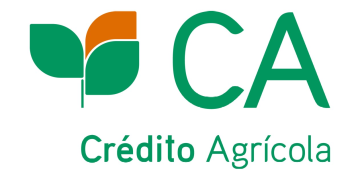

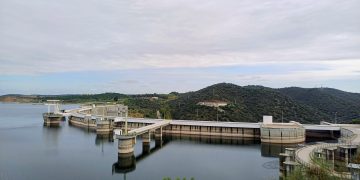

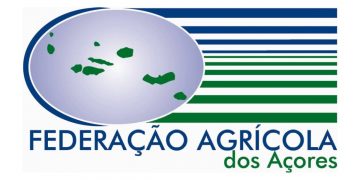
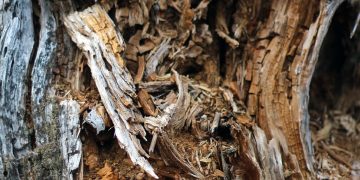














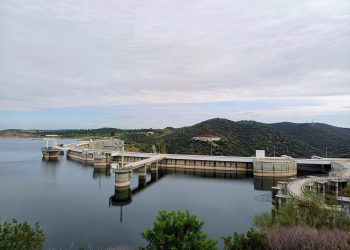








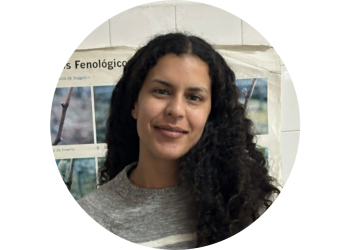










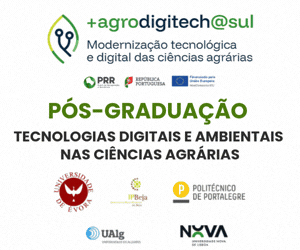








Discussão sobre este post